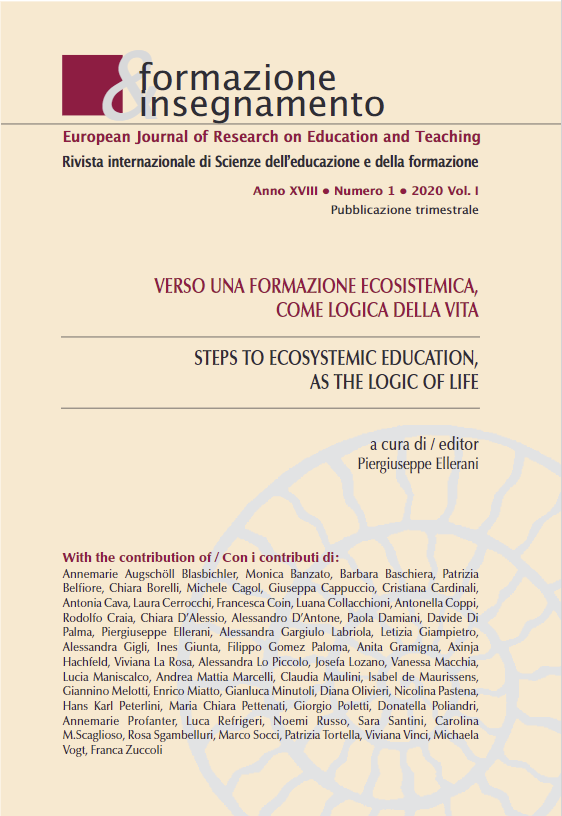Learning to Debate in primary school
DOI:
https://doi.org/10.7346/-fei-XVIII-01-20_28Abstract
This article aims to analyze the diffusion of the teaching tool of the Debate from primary school to University with the aim of increasing the Global Competencies necessary for living as active citizens. In Italy, it was introduced only a few years ago, especially in secondary school. Debate consists in a regulated communicative exchange between two opposing teams (pros and cons), whose aim is to discuss, develop and defend their position on a specific topic. This methodology allows to increase students’ social and civic skills, because it promotes open-mindedness and peer comparison about a topic. Through the exercise of Debate, students from a very early age can acquire in-depth knowledge about a topic, advance their individual cognitive development, develop the ability to select the most useful information, to support their ideas while respecting the perspectives of their peers and to find the best solution to a problem. Introducing Debate as a learning method in primary school could enhance the development of some widely applicable key competences for lifelong learning, such as learning to learn, entrepreneurial skills, functional alphabetic competence, critical thinking and awareness and expression of their cultural identity. Ultimately, it represents a training process for active citizens. It will also be presented a practical application of the methodology for educational purposes, employed during an internship experience in a primary school in Campobasso.
Downloads
Published
How to Cite
Issue
Section
License
Copyright (c) 2020 FORMAZIONE & INSEGNAMENTO. European Journal of Research on Education and Teaching

This work is licensed under a Creative Commons Attribution 4.0 International License.
Formazione & insegnamento is distributed under Attribution 4.0 International (CC BY 4.0).
For further details, please refer to our Repository & Archiving Policy, as well as our Copyright & Licensing Terms.





